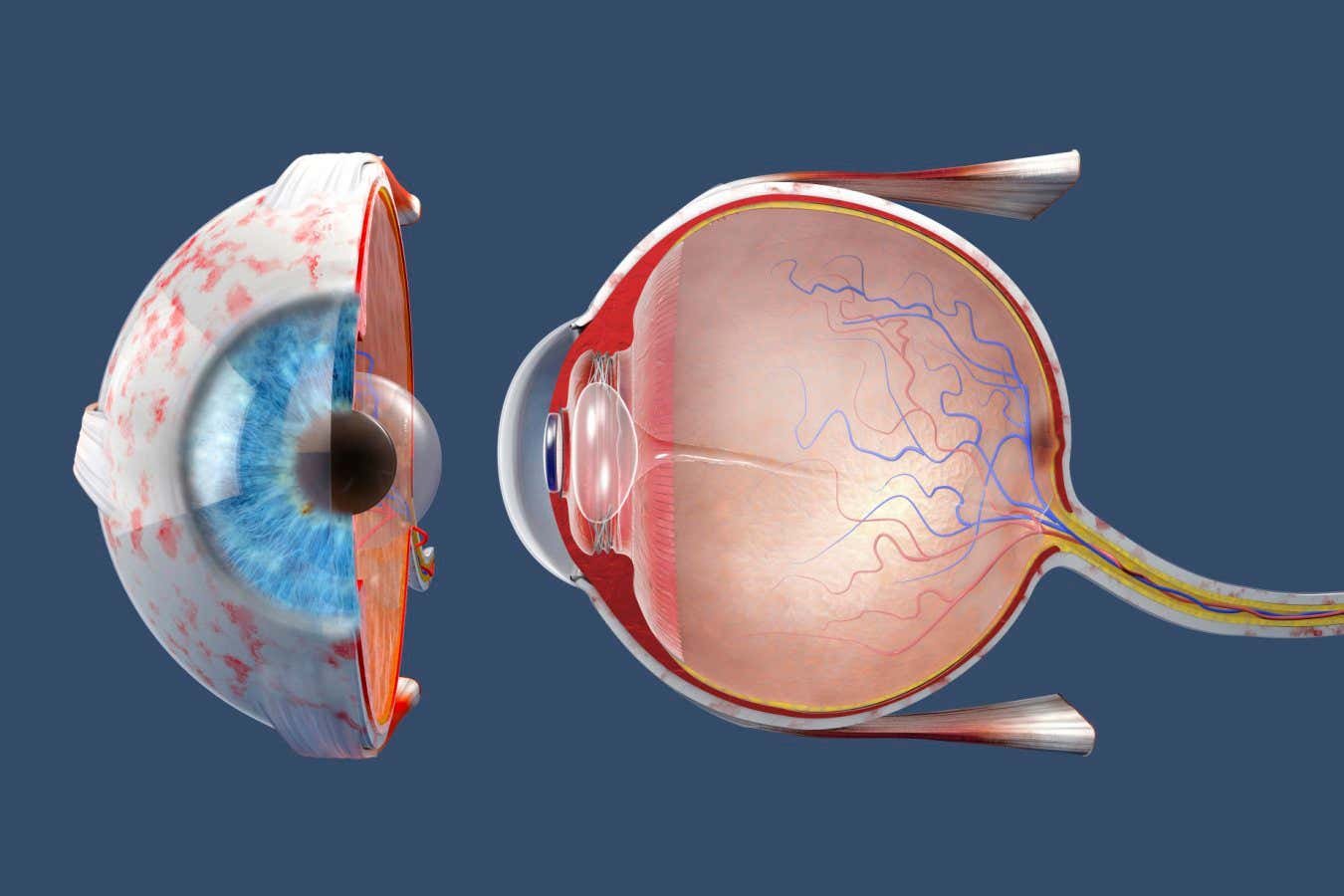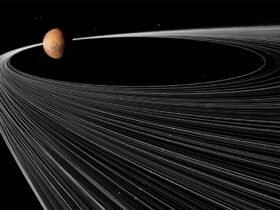
Holes in the retina can make vision patchy or blurred
CHRISTOPH BURGSTEDT/SCIENCE PHOTO LIBRARY
A transplant of human stem cells sealed a hole in a monkey’s retina, which seems to have improved its vision, offering hope for a new approach to treat a type of age-related sight loss.
As we age, a clear gel-like fluid in the eye can thicken and tug on the retina. This can tear holes in the tissue, causing blurred or patchy vision. Doctors can usually transfer tissue from other parts of the eye into the retinal holes, but in some cases, they reoccur.
To test other approaches, Michiko Mandai at the Kobe City Eye Hospital in Japan and her colleagues grew stem cells derived from a human embryo into cells that were precursors of retinal cells.
They transferred the precursor cells into a 1-millimetre-wide hole in the retina of the right eye of a snow monkey (Macaca fuscata) that had struggled in vision tests in a different study.
Mandai’s team trained the monkey to complete a sight test, using only its right eye, that required it to fix its gaze on one of hundreds of dots as they flashed up on a screen.
Before the transplant, it could fix its gaze on just 1.5 per cent of the dots. Six months after the transplant, it fixed its gaze on between 11 and 26 per cent of the dots across three tests.
The results suggest the transplant improved the monkey’s vision, but obviously the animal cannot explain exactly how much better it is, says Marius Ader at Dresden University of Technology in Germany.
More studies need to be carried out on a larger group of non-human animals, but if these are successful, the approach would probably work in people, as our eyes are very similar to those of other primates, he says.
Topics:











Leave a Reply